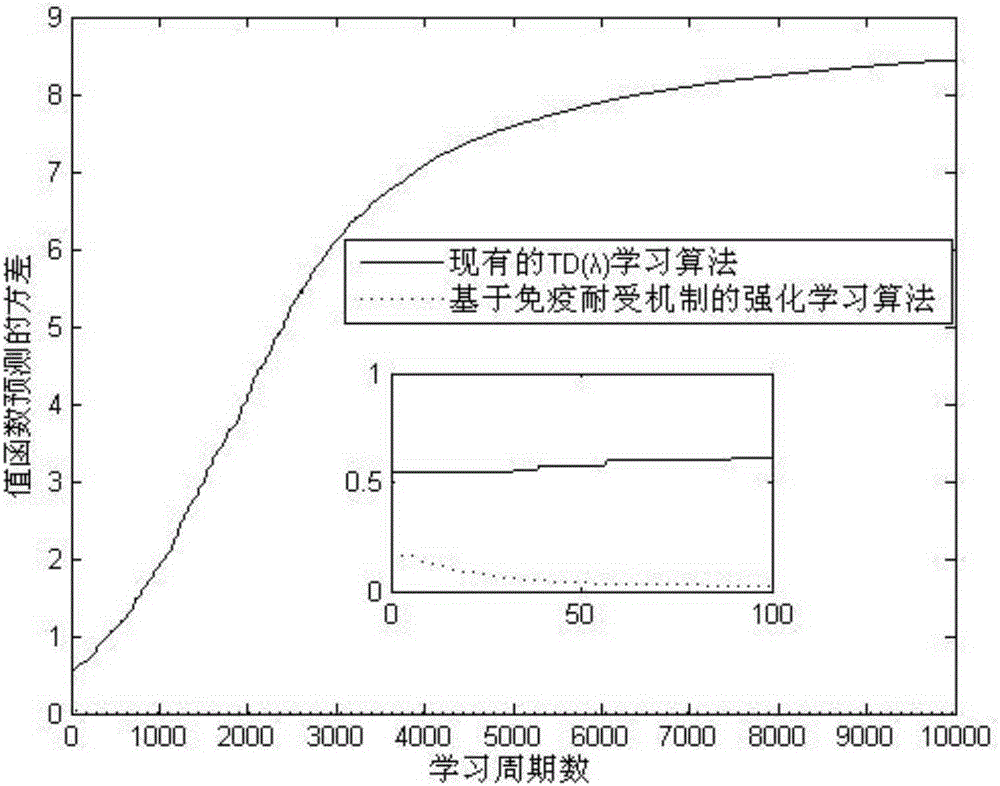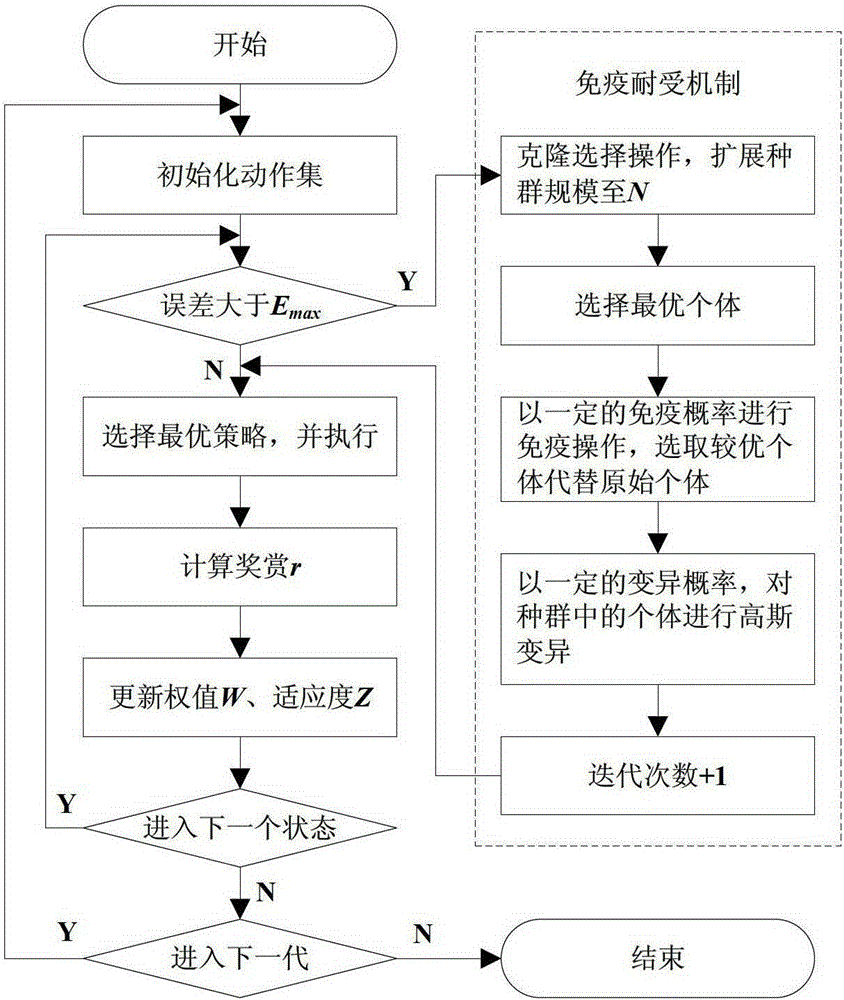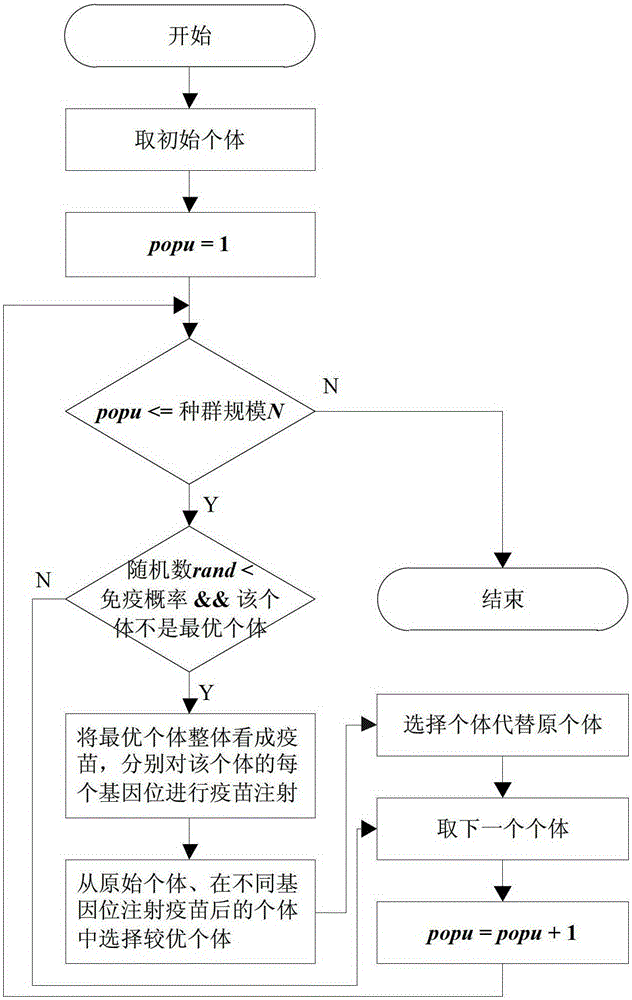Reinforcement Learning Algorithm Based on Immune Tolerance Mechanism
An immune tolerance and reinforcement learning technology, applied in the field of reinforcement learning algorithms, can solve the problems that the algorithm is easy to fall into local extremum and not converge, and achieve the effect of ensuring the global optimization ability
- Summary
- Abstract
- Description
- Claims
- Application Information
AI Technical Summary
Problems solved by technology
Method used
Image
Examples
Embodiment
[0109] The implementation process of the reinforcement learning algorithm based on the immune tolerance mechanism in the present invention will be illustrated below through an example of robot path planning.
[0110] (1) First, determine the path map of the robot, using a 20×20 grid map, represented by a matrix M, element 0 in M represents the passable area, and element 1 represents obstacles.
[0111] (2) Secondly, initialize parameters, see step 1.
[0112] (3) Starting from the starting position, if the position of the robot basically does not change within k time steps, that is, the distance between the position of the kth step before the current time step and the current position is greater than a certain threshold D max , then use immunity to optimize the learning system, jump to (4), otherwise jump to (5).
[0113] (4) Execute steps 3 to 7 for the weights in the neural network.
[0114] (5) if Figure 6 As shown, the 8 locations adjacent to the current location are...
PUM
 Login to View More
Login to View More Abstract
Description
Claims
Application Information
 Login to View More
Login to View More - R&D
- Intellectual Property
- Life Sciences
- Materials
- Tech Scout
- Unparalleled Data Quality
- Higher Quality Content
- 60% Fewer Hallucinations
Browse by: Latest US Patents, China's latest patents, Technical Efficacy Thesaurus, Application Domain, Technology Topic, Popular Technical Reports.
© 2025 PatSnap. All rights reserved.Legal|Privacy policy|Modern Slavery Act Transparency Statement|Sitemap|About US| Contact US: help@patsnap.com



